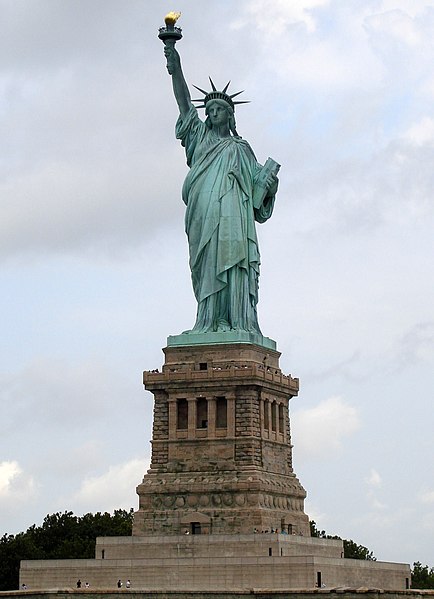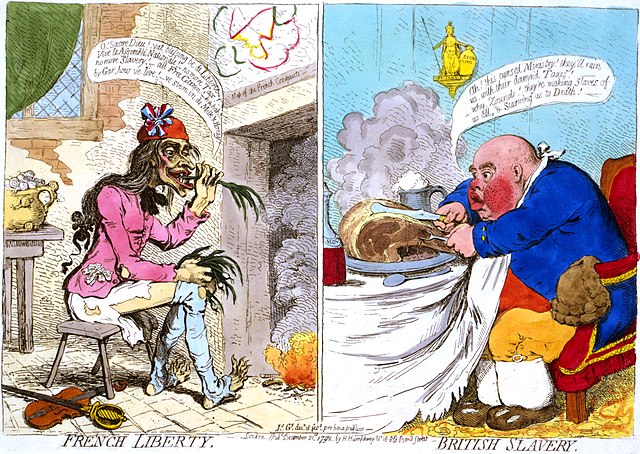Liberty is the state of being free within society from oppressive restrictions imposed by authority on one's way of life, behavior, or political views. The concept of liberty can have different meanings depending on context. In the Constitutional law of the United States, Ordered liberty means creating a balanced society where individuals have the freedom to act without unnecessary interference and access to opportunities and resources to pursue their goals, all within a fair legal system. In Christian theology, liberty is freedom from the effects of "sin, spiritual servitude, [or] worldly ties".
Liberty Enlightening the World (known as the Statue of Liberty), by sculptor Frédéric Auguste Bartholdi, was donated to the US by France in 1886 as an artistic personification of liberty.
John Stuart Mill
Bust of Aristotle
In French Liberty. British Slavery (1792), James Gillray caricatured French "liberty" as the opportunity to starve and British "slavery" as bloated complaints about taxation.
Negative liberty is freedom from interference by other people. Negative liberty is primarily concerned with freedom from external restraint and contrasts with positive liberty. The distinction originated with Bentham, was popularized by T. H. Green and Guido De Ruggiero, and is now best known through Isaiah Berlin's 1958 lecture "Two Concepts of Liberty".
Torch of liberty from antiquity at the Istanbul Archaeology Museums





